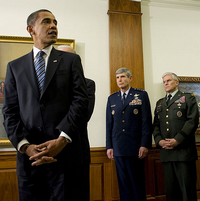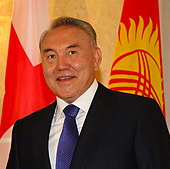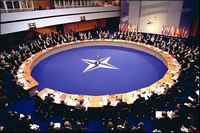
Does the United States have a special responsibility to manage international affairs? This question has come to inform much of the debate about the role that the U.S. is currently playing in military operations over Libya. Glenn Greenwald of Salon has argued that the idea that the United States has the right to intervene in the internal politics of other countries has its source in a widespread acceptance of American Exceptionalism, the notion that the United States is different, special and privileged compared to other nations. Writing from a realist perspective, Stephen Walt echoed this claim, arguing that both neoconservatives […]



